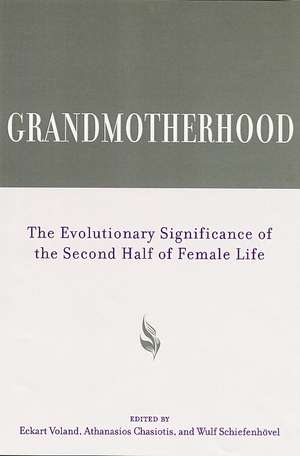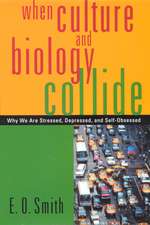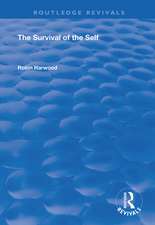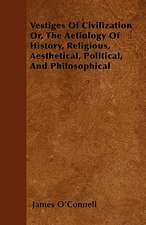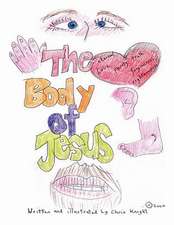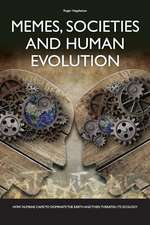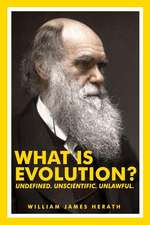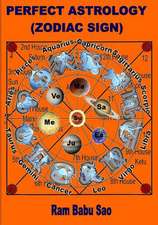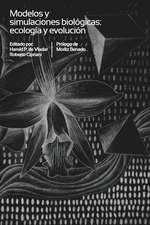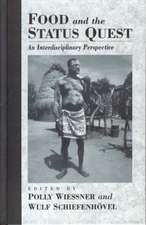Grandmotherhood: The Evolutionary Significance of the Second Half of Female Life
Contribuţii de Chris Knight, Camilla Power Editat de Eckart Voland, Anthanasios Chasiotis, Wulf Schiefenhovel Contribuţii de Professor Donna Leonetti, Professor Dilip Nath, Professor Natabar Heman, Professor Dawn Neill, Professor Akiko Nosaka, Professor Jan Beise, Professor Andreas Paul, Professor Ruth Mace, Professor Rebecca Sear, Professor Axel Scholmerich, Professor Birgit Leyendecker, Professor Banu Citlak-Kisagun, Professor Amy Miller, Professor Robin Harwood, Professor Kristen Hawkes, Professor Nicholas Blurton Jones, Professor James O'Connell, Professor Sarah Blaffer Hrdy, Professor Natalia Gavrilova, Professor Leonid Gavrilov, Professor Jocelyn Scott Peccei, Professor Cheryl Sorenson Jamison, Professor Paul Jamison, Professor Lauren Cornellen Limba Engleză Paperback – 9 aug 2005
By the year 2030, the average life expectancy of women in industrialized countries could reach ninety—exceeding that of men by about ten years. At the present time, postmenopausal women represent more than fifteen percent of the world’s population and this figure is likely to grow.
From an evolutionary perspective, these demographic numbers pose some intriguing questions. Darwinian theory holds that a successful life is measured in terms of reproduction. How is it, then, that a woman’s lifespan can greatly exceed her childbearing and childrearing years? Is this phenomenon simply a byproduct of improved standards of living, or do older women—grandmothers in particular—play a measurable role in increasing their family members’ biological success?
Until now, these questions have not been examined in a thorough and comprehensive manner. Bringing togethertheoretical and empirical work byinternationally recognized scholars in anthropology, psychology, ethnography, and the social sciences, Grandmotherhood explores the evolutionary purpose and possibilities of female post-generative life. Students and scholars of human evolution, anthropology, and even gerontology will look to this volume as a major contribution to the current literature in evolutionary studies.
From an evolutionary perspective, these demographic numbers pose some intriguing questions. Darwinian theory holds that a successful life is measured in terms of reproduction. How is it, then, that a woman’s lifespan can greatly exceed her childbearing and childrearing years? Is this phenomenon simply a byproduct of improved standards of living, or do older women—grandmothers in particular—play a measurable role in increasing their family members’ biological success?
Until now, these questions have not been examined in a thorough and comprehensive manner. Bringing togethertheoretical and empirical work byinternationally recognized scholars in anthropology, psychology, ethnography, and the social sciences, Grandmotherhood explores the evolutionary purpose and possibilities of female post-generative life. Students and scholars of human evolution, anthropology, and even gerontology will look to this volume as a major contribution to the current literature in evolutionary studies.
Preț: 348.32 lei
Nou
Puncte Express: 522
Preț estimativ în valută:
66.67€ • 72.45$ • 56.04£
66.67€ • 72.45$ • 56.04£
Carte tipărită la comandă
Livrare economică 21 aprilie-05 mai
Preluare comenzi: 021 569.72.76
Specificații
ISBN-13: 9780813571416
ISBN-10: 0813571413
Pagini: 354
Dimensiuni: 156 x 235 x 20 mm
Greutate: 0.49 kg
Ediția:First Paperback Edition
Editura: Rutgers University Press
Colecția Rutgers University Press
ISBN-10: 0813571413
Pagini: 354
Dimensiuni: 156 x 235 x 20 mm
Greutate: 0.49 kg
Ediția:First Paperback Edition
Editura: Rutgers University Press
Colecția Rutgers University Press
Notă biografică
Eckart Voland is a professor of biophilosophy at the Institute of Philosophy and Foundations of Science at the University of Giessen in Germany.
Athanasios Chasiotis is an associate professor at the School of Social and Behavioral Sciences at Tilburg University, the Netherlands.
Wulf Schiefenhövel is the head of the human ethology group, Max-Planck-Institute, Andechs/Seewiesen in Germany and a professor of medical psychology and ethnomedicine at the Ludwig-Maximilians-University in Munich.
Athanasios Chasiotis is an associate professor at the School of Social and Behavioral Sciences at Tilburg University, the Netherlands.
Wulf Schiefenhövel is the head of the human ethology group, Max-Planck-Institute, Andechs/Seewiesen in Germany and a professor of medical psychology and ethnomedicine at the Ludwig-Maximilians-University in Munich.
Cuprins
Preface and Acknowledgements
Introduction Grandmotherhood: A Short Overview of Three Fields of Research on the Evolutionary Significance of Postgenerative Female Life
Eckart Voland, Athanasios Chasiotis, and Wulf Schiefenhövel
Part I LIFE HISTORY: The Evolutionary Route to Grandmothers
Chapter 1 Primate Predispositions for Human Grandmaternal Behavior
Andreas Paul
Chapter 2 Menopause: Adaptation and Epiphenomenon
Jocelyn Scott Peccei
Chapter 3 Human Longevity and Reproduction: An Evolutionary Perspective
Natalia S. Gavrilova and Leonid A. Gavrilov
Chapter 4 Grandmothers, Politics, and Getting Back to Science
Chris Knight and Camilla Power
Chapter 5 Human Female Longevity: How Important Is Being a Grandmother?
Cheryl Sorenson Jamison, Paul L. Jamison, and Laurel L. Cornell
Chapter 6 Human Age Structures, Paleodemography, and the Grandmother Hypothesis
Kristen Hawkes and Nicholas Blurton Jones
Part II BEHAVIOR: Modern Outcomes of Past Adaptations
Chapter 7 Are Humans Cooperative Breeders?
Ruth Mace and Rebecca Sear
Chapter 8 Hadza Grandmothers as Helpers: Residence Data
Nicholas Blurton Jones, Kristen Hawkes, and James O'Connell
Chapter 9 The Role of Maternal Grandmothers in Trobriand Adoptions
Wulf Schiefenhövel and Andreas Grabolle
Chapter 10 Kinship Organization and the Impact of Grandmothers on Reproductive Success among
the Matrilineal Khasi and Patrilineal Bengali of Northeast India
Donna L. Leonetti, Dilip C. Nath, Natabar S. Hemam, and Dawn B. Neill
Chapter 11 The Helping and the Helpful Grandmother: The Role of Maternal and Paternal Grandmothers in Child Mortality
in the Seventeenth- and Eighteenth-Century Population of French Settlers in Quebec, Canada
Jan Beise
Chapter 12 "The Husband's Mother Is the Devil in House": Data on the Impact of the Mother-in-Law on Stillbirth
Mortality in Historical Krummhörn (1750-1874) and Some Thoughts on the Evolution of Postgenerative Female Life
Eckart Voland and Jan Beise
Chapter 13 Exploring the Variation in Intergenerational Relationships among Germans and Turkish Immigrants: An
Evolutionary Perspective of Behavior in a Modern Social Setting
Akiko Nosaka and Athanasios Chasiotis
Chapter 14 Variability of Grandmothers' Roles
Axel Schölmerich, Birgit Leyendecker, Banu Citlak, Amy Miller, and Robin Harwood
Part III SYNTHESIS: The Evolutionary Significance of Grandmothers
Chapter 15 Cooperative Breeders with an Ace in the Hole
Sarah Blaffer Hrdy
Contributors
Name Index
Subject Index
Introduction Grandmotherhood: A Short Overview of Three Fields of Research on the Evolutionary Significance of Postgenerative Female Life
Eckart Voland, Athanasios Chasiotis, and Wulf Schiefenhövel
Part I LIFE HISTORY: The Evolutionary Route to Grandmothers
Chapter 1 Primate Predispositions for Human Grandmaternal Behavior
Andreas Paul
Chapter 2 Menopause: Adaptation and Epiphenomenon
Jocelyn Scott Peccei
Chapter 3 Human Longevity and Reproduction: An Evolutionary Perspective
Natalia S. Gavrilova and Leonid A. Gavrilov
Chapter 4 Grandmothers, Politics, and Getting Back to Science
Chris Knight and Camilla Power
Chapter 5 Human Female Longevity: How Important Is Being a Grandmother?
Cheryl Sorenson Jamison, Paul L. Jamison, and Laurel L. Cornell
Chapter 6 Human Age Structures, Paleodemography, and the Grandmother Hypothesis
Kristen Hawkes and Nicholas Blurton Jones
Part II BEHAVIOR: Modern Outcomes of Past Adaptations
Chapter 7 Are Humans Cooperative Breeders?
Ruth Mace and Rebecca Sear
Chapter 8 Hadza Grandmothers as Helpers: Residence Data
Nicholas Blurton Jones, Kristen Hawkes, and James O'Connell
Chapter 9 The Role of Maternal Grandmothers in Trobriand Adoptions
Wulf Schiefenhövel and Andreas Grabolle
Chapter 10 Kinship Organization and the Impact of Grandmothers on Reproductive Success among
the Matrilineal Khasi and Patrilineal Bengali of Northeast India
Donna L. Leonetti, Dilip C. Nath, Natabar S. Hemam, and Dawn B. Neill
Chapter 11 The Helping and the Helpful Grandmother: The Role of Maternal and Paternal Grandmothers in Child Mortality
in the Seventeenth- and Eighteenth-Century Population of French Settlers in Quebec, Canada
Jan Beise
Chapter 12 "The Husband's Mother Is the Devil in House": Data on the Impact of the Mother-in-Law on Stillbirth
Mortality in Historical Krummhörn (1750-1874) and Some Thoughts on the Evolution of Postgenerative Female Life
Eckart Voland and Jan Beise
Chapter 13 Exploring the Variation in Intergenerational Relationships among Germans and Turkish Immigrants: An
Evolutionary Perspective of Behavior in a Modern Social Setting
Akiko Nosaka and Athanasios Chasiotis
Chapter 14 Variability of Grandmothers' Roles
Axel Schölmerich, Birgit Leyendecker, Banu Citlak, Amy Miller, and Robin Harwood
Part III SYNTHESIS: The Evolutionary Significance of Grandmothers
Chapter 15 Cooperative Breeders with an Ace in the Hole
Sarah Blaffer Hrdy
Contributors
Name Index
Subject Index
Recenzii
"An important contribution to the literature, not just on grandmothers, but on human evolution generally. This edited volume provides a forum in which a rapidly developing view of human evolution can coalesce."
Descriere
Bringing togethertheoretical and empirical work byinternationally recognized scholars in anthropology, psychology, ethnography, and the social sciences, Grandmotherhood explores the evolutionary purpose and possibilities of female post-generative life. Students and scholars of human evolution, anthropology, and even gerontology will look to this volume as a major contribution to the current literature in evolutionary studies.
